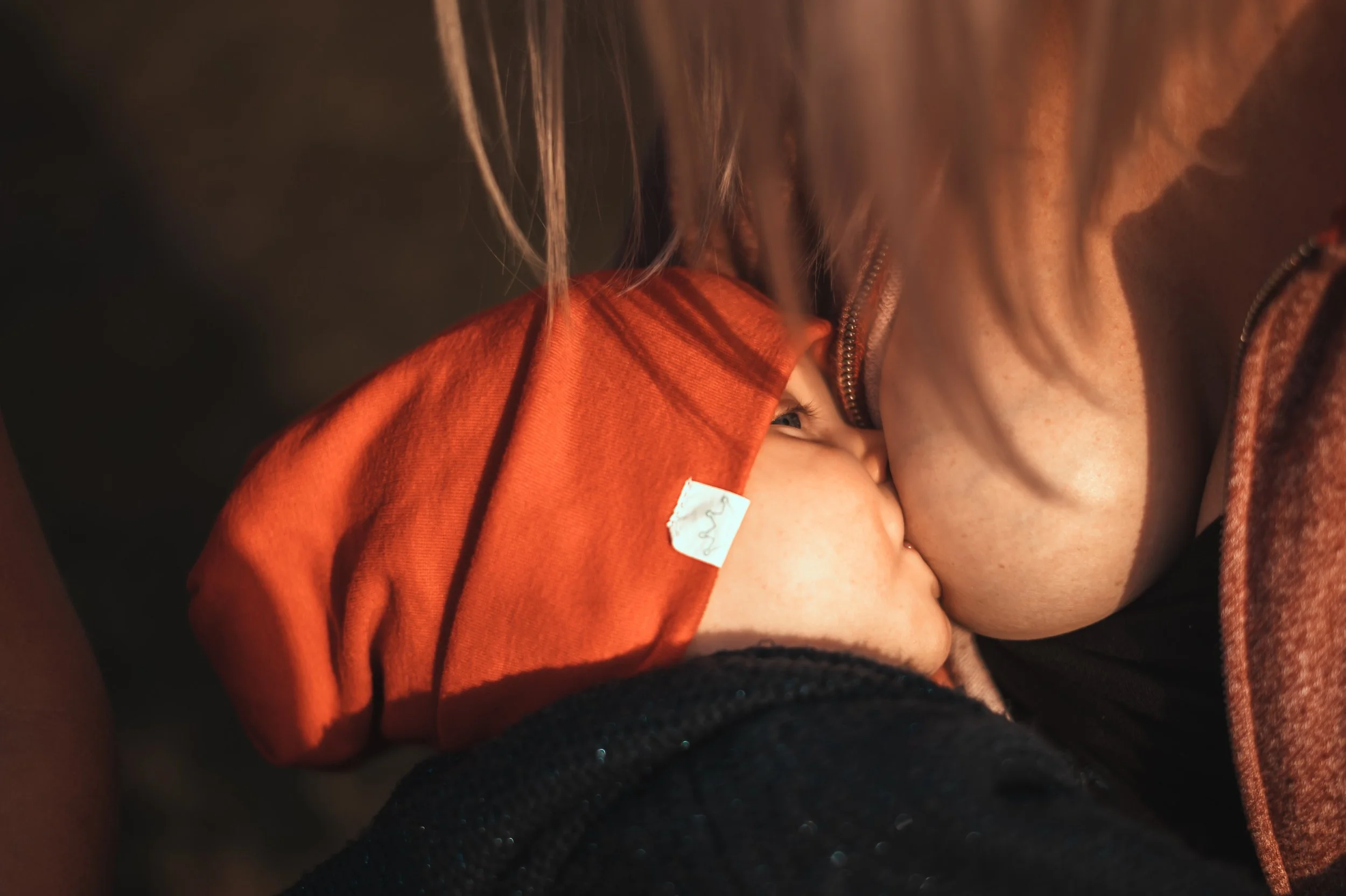Breastfeeding: 11 Tips Every New Mum Needs To Know
Contrary to popular belief, breastfeeding may not come naturally to you. There is a precise science to it - it’s a skill we can learn and practise - and knowing this helps remove some of the mystery surrounding it, making breastfeeding feel more achievable.
We grow up as little girls and boys playing with dolls, and we feed them by bottle. Bottle-feeding is normalised in this way, but breastfeeding isn’t. For a long time, breastfeeding women have been urged to keep it on the down-low, away from the public gaze, and have been subjected to societal taboo. For this reason, it’s so important that the facts of breastfeeding are made accessible, and that if you do choose to breastfeed, you are equipped with the tools you need to prepare your mind and body, to give yourself the best chance of success. Let’s take a look at some tips to get you started!
1. Prioritise skin-to-skin contact
Keeping your baby close to you is the best way to get started with breastfeeding. Skin-to-skin contact has many benefits for you and your baby, both immediately after birth and throughout the postnatal period. Not only is it effective in maintaining your baby’s temperature, heart rate, and breathing, it’s also an important catalyst for a strong hormonal response which helps you bond with your baby, and triggers your milk supply.
2. Find postpartum support
Make a list of trusted friends and family who you can call on for support when you start feeding. It’s also a good idea to find the contact details of your local lactation consultant, tongue tie practitioner, and infant feeding team. If you can get hold of this information while you’re still pregnant, then you’ll likely have an easier time when you need their help.
3. Take a breastfeeding course
Taking a holistic breastfeeding course is a brilliant way of feeling empowered and knowing your options. Loved by Parents awarded butterbean with our 2023 award for best innovative maternity product. Lucy, antenatal educator, birth expert, and founder of butterbean, provides care that’s tailored to your unique journey. It’s a trusted hub of feeding advice, covering safe and effective feeding positions, detailed guidance on how to help your baby latch successfully, tips on what to do if your breasts become engorged, and information on different ways to feed your baby so you can be fully aware of your options. It even includes a comprehensive hypnobirthing course, a midwife-monitored helpline, and personalised pregnancy yoga sessions. Put simply, butterbean is a one-stop shop for getting clued up on all things feeding - it’s suitable for all journey stages, and is accessible on demand to suit your schedule. Find out more here: www.butterbean.uk/join-us/
4. Start breastfeeding early
This one is fascinating – the sooner you begin breastfeeding, the stronger your milk supply will be. Early and frequent feeding is your best chance of reaching long-term feeding goals, and establishing a solid pattern quickly.
5. Feed on demand
Ditch the schedule – they are the top reason for a low milk supply. Feed your little one against their own hunger cues. They might move their fists to their mouth, turn their head to look for your breast, become more alert and active, suck on their hands or smack their lips, or open and close their mouth. Knowing what to look for will help you recognise and learn your baby’s cues confidently.
6. Stay hydrated
Breastfeeding is thirsty work! Stay hydrated by drinking lots of water during and between feeds. You also burn 500-700 calories per day while breastfeeding - so keep the snacks up, you may find you’re very hungry.
7. Avoid bottles and dummies
Bottles can undermine your milk supply, so if you are trying to breastfeed, it’s best to avoid them during the first 6-8 weeks following birth. Dummies can mask hunger cues, making it harder for you to spot them.
8. Keep an eye on your baby’s weight
If you want your baby’s weight checked at any point, don’t hesitate to call on your health visitor. This will help to give you peace of mind that feeding is going well. We all need reassurance sometimes!
9. Beware of nipple shields
Nipple shields can impact your baby’s latch, it can make the latch shallow which can mean your baby is less able to transfer milk. If you’re using them, be sure to check your baby’s weight regularly to ensure they’re able to extract enough milk from your breasts. Some women find that shields can save a breastfeeding journey and swear by them, some have a tricky time with them.
10. Don’t bother with nursing pillows
While they’re marketed as essential nursing companions, nursing pillows are in fact an expensive fad you’ll likely end up not using. All you need for breastfeeding is your breasts and your baby! The success of your feeding journey isn’t dependent on fancy equipment, but rather on your baby’s cues, finding the perfect position, and attaining a good latch.
11. Leaky boobs
You may experience leakages in the first 6-8 weeks after birth or before your milk supply is established. If this isn’t your first time breastfeeding you may experiences leakages for a longer period of time. Be sure to have breast pads handy or be prepared to compress one breast when you feel the let down – this can help lessen the leak or stop it altogether.
Hold fast!
While it may come with its challenges, remember that you are not alone on your breastfeeding journey. With the right knowledge, support, and a lot of patience and kindness with yourself, you can make the most of this incredible bonding experience with your baby. Reach out to loved ones and experts where necessary. Trust your body's ability to provide for your baby, and trust in your innate maternal instincts. With time and practice, breastfeeding will become second nature, and even something you can cherish and enjoy!
For more info visit www.butterbean.uk







